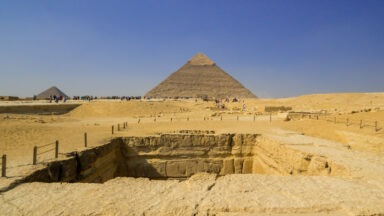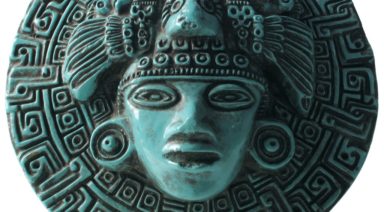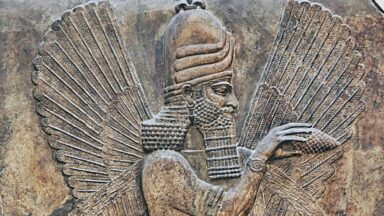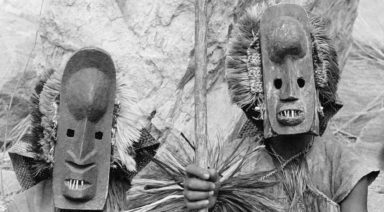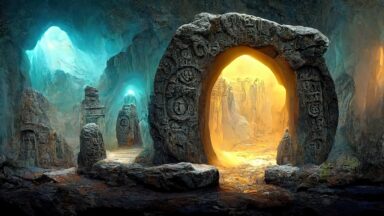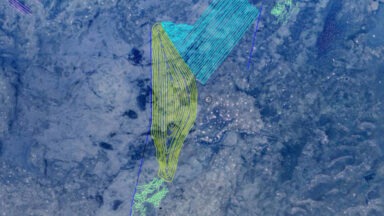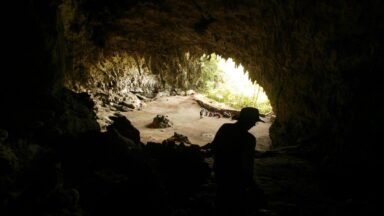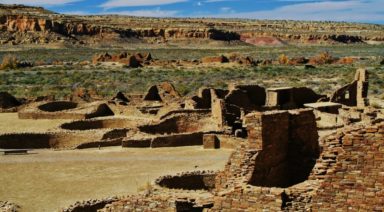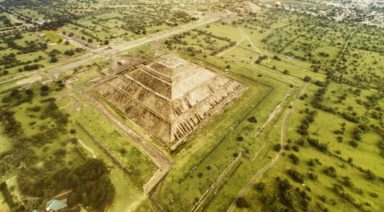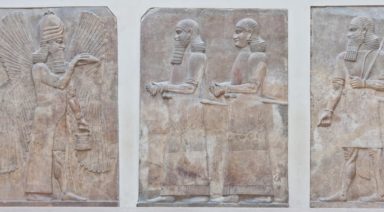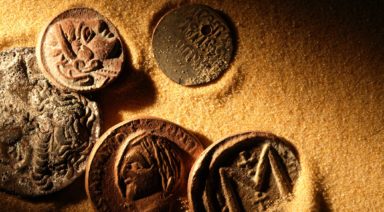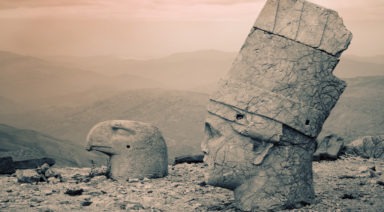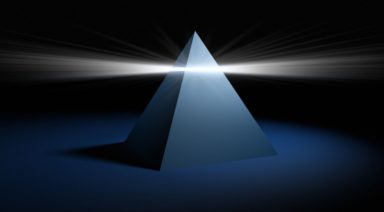These Ancient Civilizations Had Strange Explanations For The Solar Eclipse

The coming solar eclipse is an exciting time for many, bringing people together to celebrate a cosmic phenomenon. Many will travel for miles in North America to view the totality of the eclipse, in all of its beauty. But before we understood exactly what was happening during one of these events, our ancient ancestors were a little freaked out.
Across a number of civilizations, many people were frightened by the obfuscation of the sun when the moon crossed it path, despite its brief duration. Folklore and myths were created to explain the rare and seemingly bizarre event, and often with some overlap in different culture’s theories about what was really going on. But until modern science was able to explain the occurrence, most perceived the event to be ominous and cause for panic.
Devouring the Sun and Moon
Several cultures believed that a solar eclipse was the result of famished creatures trying to eat the sun or moon. Every time this happened the creatures failed, but everyone still worried that they would succeed at some point and the sun might disappear forever. For more primitive cultures this was a valid cause for concern, considering their dependence on the cyclical nature of night and day, so a disruption in that process must have been frightening.
Up until the 19th century, ancient Chinese cultures believed that a celestial dragon would devour the sun during an eclipse. The emperor in China was closely linked with the Sun, and therefore it was important for his astronomers to correctly predict when a solar eclipse would occur. Fear for the safety of the king was also shared by the ancient Babylonians, who would place a substitute ruler on the throne during an eclipse to deal with the wrath of the gods. This fear was perpetuated by the death of King Henry I in England, shortly after a solar eclipse. Legend has it that two astronomers were killed for an incorrect prediction because it did not leave people time to prepare for the event. During an eclipse, the ancient Chinese would make a lot of noise by beating drums, chanting and firing cannons, in an attempt to scare off the dragon. This practice of attempting to scare off these ravenous creatures was a recurring theme amongst ancient cultures.
Not too far away, in Korea, it was thought that two fire dogs, known as Bul-Gae, would chase the sun and the moon in an attempt to eat them. When they caught them, the sun would be too hot and the moon too cold, so the dogs would release them until next time. The Vikings also believed that two wolves, Skoll and Hati, caused the eclipse when they would chase the sun and moon across the sky in an attempt to eat them. The day that the wolves finally catch the celestial bodies will be the day of Ragnarök, the Viking apocalypse.

Asian depiction of dog eating the sun
In India, mythology held that a solar eclipse occurred when a demon, named Rahu, attempted to drink an elixir of the gods that provided immortality. The Hindu god, Vishnu, would catch Rahu drinking the potion and cut off his head before the liquid made it down his throat. The demon’s head briefly devours the sun, until it is cut off and rolls away. During this time, Indians would bang pots and pans and make other loud noises to scare away Rahu. Fasting is common during the eclipse as it is thought that the air becomes poisonous and can contaminate food and water. Superstition is common in India to this day, to the point where some will not leave their houses and take part in ceremonies to protect against the evils of an eclipse.
Positive Belief in Eclipses
In some ancient cultures, eclipses were not feared nearly as much. These people understood the eclipse to be a natural phenomenon that was to be revered or appreciated. The Navajo fell somewhere in between, not quite fearful, but cautiously revering the event and staying inside to reflect upon it. They believed in the cosmic order of the universe and understood it to be representative of balance.

A Solar Eclipse
In Islam, the death of the Prophet Muhammad’s son, Ibrahim, coincided with a solar eclipse, but Muhammad saw it as a natural event. At the time Muslims believed it to be a divine response to the death of Ibrahim, but Muhammad did not ascribe human significance to it. He said that the sun and moon do not eclipse for man, although he said it was to be revered as a special event and a time to remember God. Muslims even have a special prayer in addition to the daily five, that is said during the eclipse.
The Mayans, known for their advanced astronomy, had an eclipse table in the Dresden Codex that has accurately predicted eclipses into the modern era. Unfortunately, that was one of few texts from the ancient Mayans that wasn’t destroyed by Spanish conquistadores, so it is hard to tell exactly what the Mayans believed about eclipses. It is thought that they might have perceived the Sun and Moon to be a disputing couple, but probably also understood the phenomena as we do now.
Despite, some unfounded modern beliefs that a solar eclipse can be harmful to pregnant woman, the only real danger comes from staring directly at the sun. While we now know the true, more mundane nature of an eclipse, it is still thought of as a special and sometimes spiritual event, or at least one to be revered for its cosmic beauty. How will you be observing the solar eclipse?
Evidence of Seven Levels Beneath the Giza Plateau

Five miles from Cairo stands one of the most ancient and alluring sites in human history. This mystery comprises the three main pyramids of Giza that have come to represent one of the most famous ancient civilizations. The megalithic stones that form these structures lie on a great plateau, and now investigators have found something else fascinating that lies below the pyramids.
Gregg Braden explains that some of the earliest credible accounts of the Giza Plateau come from the Greek historian and geographer Herodotus, who, in the early 400s B.C.E, compiled a reference book on ancient civilizations, cultures, and technologies predating his time by thousands of years.
Prior to Herodotus, no one had presented a systematic, thorough study of the past, attempting to link events with how they shaped history. Herodotus speculated there were hidden passages beneath the pyramids, as well as chambers, pathways, and great spaces — all of which were created when the climate and topography of Egypt were very different than it is today. Herodotus felt that beneath the pyramids lay the remnants of other ancient civilizations.
If Herodotus was correct, the pyramids may be sitting upon the most amazing time capsule in history, revealing not only long-lost cultures but also their technologies and origins saved in the earliest of writings and images.
Two researchers stand out in the search to uncover the underground spaces beneath the pyramids: British Consul General Henry Salt and his hired explorer Giovanni Battista Belzoni. These men were able to survey the area with the limited technology of their time in the early 1800s and were led by the desert topography to an area at the edge of the Giza Plateau, now an archaeological find of its own called The Tomb of the Birds.


